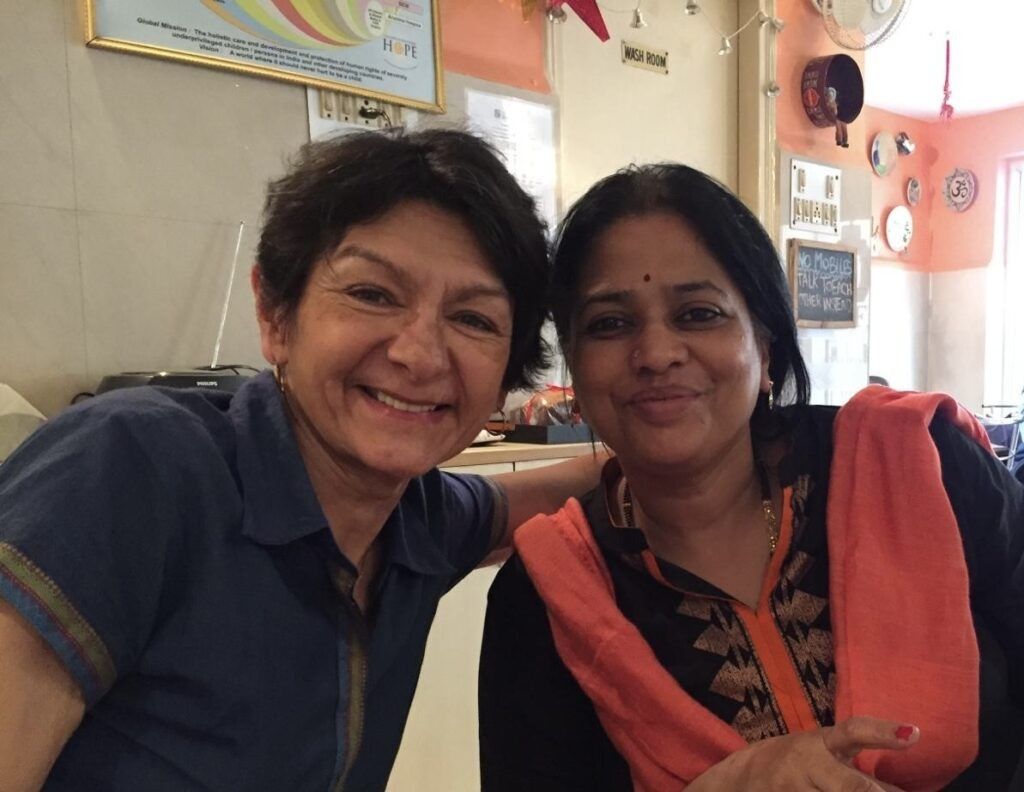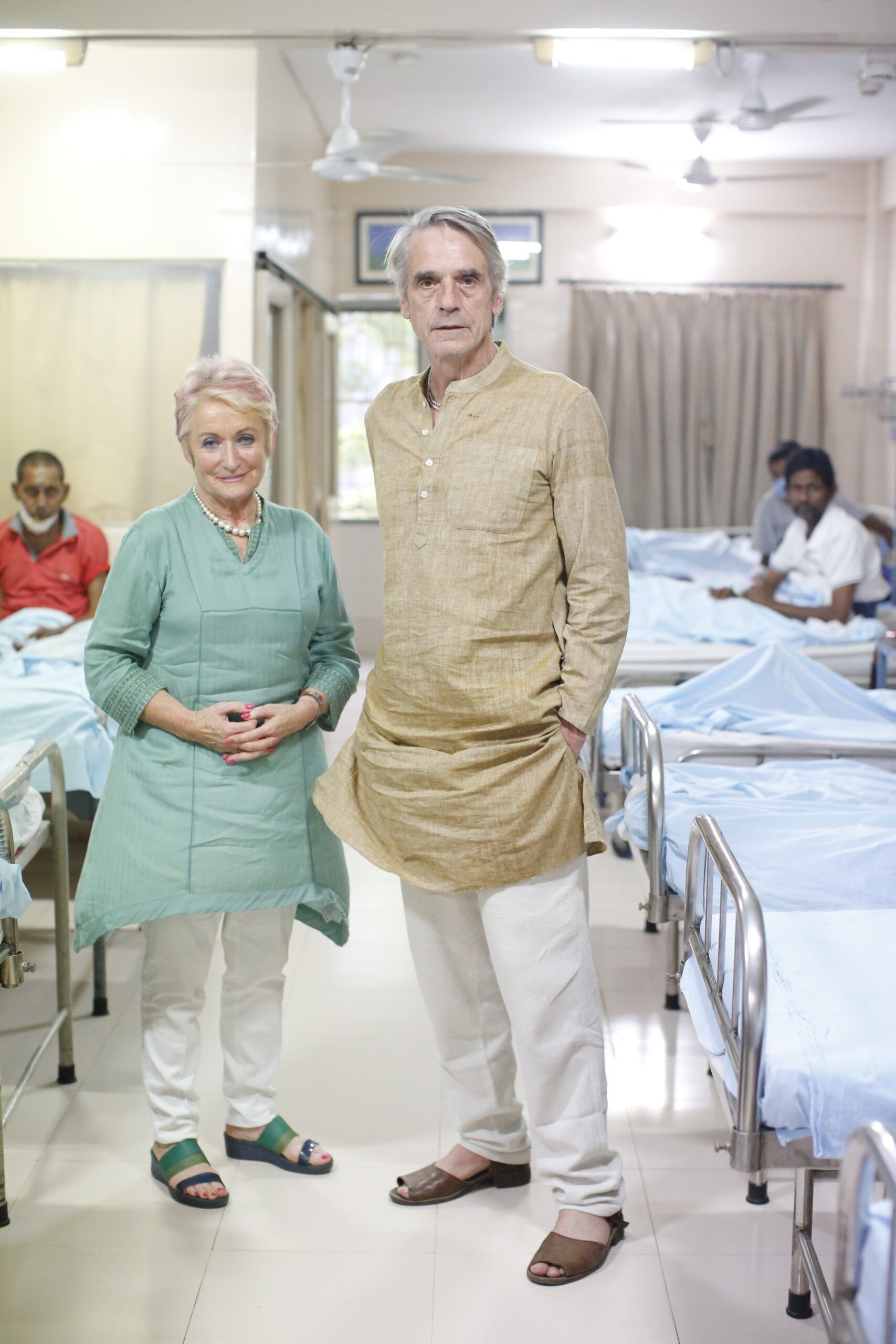
AMIT ROYBy: AMIT ROY
THE actress Shelley King, best known for playing Yasmeen Nazir in Coronation Street and Jay Harper in Angels, has talked to Eastern Eye about a children’s street charity in Kolkata which will be marking its 25th anniversary on November 9, 2024.
King, who herself lived in Kolkata till the age of 10, has been ambassador for 10 years for The Hope Foundation for Street Children – called HOPE in short.
“I think it’s a worthwhile charity,” said King. “I’ve been all over the world looking at similar situations [to do with poverty]. But I have chosen The Hope Foundation because it’s an absolutely transparent NGO (nongovernmental organisation).
It’s an extraordinary organisation.” A number of other stars – among them Jeremy Irons, Dame Judi Dench and Olivia Colman – are also supporting the charity or have become ambassadors.

An Irish humanitarian, Maureen Forrest, founded the charity in 1999 after being moved by the poverty she found during a visit to what the people of Calcutta (now Kolkata) like to call the “City of Joy”.
As to why such a charity is needed at all when India is predicted to become the third biggest economic power in the world after America and China, there was of touch of asperity in King’s response.
“Economic wealth – particularly in Kolkata – does not get filtered down to the street children and their families,” she responded. “It does not – let’s be truthful about this.”
This remains a very sensitive point. Governments in West Bengal and indeed the people of the state have always been ambivalent about the work that has been done, for example, by Mother Teresa and her Missionaries of Charity. While proud that the Albanian-born nun chose Kolkata to be her home, there has also been a feeling the link did not help the city’s international image and perhaps even harmed its chances of attracting investment.
HOPE is launching a funding campaign on April 12, on “the International Day for Street Children”.
It will start a walking challenge called “Footsteps for HOPE”. Participants will be encouraged to walk 10,000 steps per day from April 12 to May 12 to raise funds for education projects for street children. “It is estimated that there are 250,000 street-connected children in Kolkata, who are from the most disadvantaged communities in India,” according to HOPE. “Many street-connected children come from families who struggle to access daily necessities, such as food, clean water and somewhere safe to sleep. Others are alone in the city, working from a young age to provide for themselves, vulnerable to abuse, trafficking and exploitation.”
It is said that “from a single childcare centre set up to protect 13 vulnerable streetconnected girls, the organisation now implements 57 transformative projects in the city – including four creches, 10 residential childcare centres and a state-of-the-art hospital. To date, HOPE has touched the lives of nearly three million people.”
Shelley, who has been to Kolkata several times to support the charity, told Eastern Eye about the practical work that it does.
She said: “They have some 10 homes, separately for boys and girls. They have helped so many children. They school them and give them further education. They have just started a home for disabled and special needs children.
“They have gone into villages and created learning centres. They look after children, aged five to 10, and feed them during the day while their parents go to work. For older children up to the age of 18, there are opportunities for further education – personal hygiene for women, and computer training and going into the hotel industry for both boys and girls.”
King spoke with emotion about HOPE’s director in Kolkata, Geeta Venkadakrishnan, who was about to turn 40 when she died of Covid on October 11, 2020.
King described her as “an extraordinary woman who was absolutely dedicated and tireless in her work. When I first met her, I thought she was being rude because she was always answering her phone. But I tagged along. When the tsunami came to south India in 2004, she actually went there to bury and help people.
“During Covid, there was no way you could isolate people on the streets of Kolkata. Geeta was out there feeding people. I said, ‘Come on, wear a mask.’ She said, ‘People don’t want to see a woman approaching them wearing a mask.’ She fell ill, developed very bad breathing problems and died. Geeta was with Maureen [Forrest] from the start.”
King said she has tried to help by doing voiceovers for HOPE and making films about the charity.
She first met Irons at a cricket match at Lord’s and spent the day talking to him.
Irons, who has supported the charity for many years, has been named HOPE’s special ambassador for its 25th anniversary, which he called “a significant milestone”.

The actor, who visited Kolkata in 2019, said the work HOPE “does in Kolkata is truly life-changing, providing hope and opportunity to those who need it most. For 25 years, HOPE has been a beacon of light and compassion. But its work isn’t finished. It remains dedicated to ensuring that every child remains healthy and has access to education. We all have our part to play because merely talking of change is not enough – please help make this a reality and support in any way you can.”
There was a similar message from Dench, a HOPE ambassador, who said: “Your contribution, no matter the size, will play a crucial role in extending HOPE’s reach and touching the lives of countless more people. As we come together to give, we not only change lives, but also collectively shape a world where HOPE and a better future is a universal right.”
While filming the BBC series Who Do You Think You Are? in Kolkata in 2018, Colman found out that one of her ancestors was Indian. She discovered “her great-great-great grandmother Harriot was born in a remote Indian village and travelled by ship from Kolkata to England in 1811”.
The actress explained her support for HOPE: “For many children living on the streets and in the slums of Kolkata, life is an immense struggle. They lack access to the necessities of life, such as food, clean water and access to healthcare. Many start work from a young age to provide for themselves or their families, and don’t enjoy a normal childhood or their right to education.
“This is why the work of The Hope Foundation for Street Children is so necessary – the organisation is restoring basic human rights to some of India’s most disadvantaged communities to create sustainable change. I am proud to support HOPE’s 25th anniversary campaign, and I encourage you all to do so too.”
Maura Lennon, HOPE CEO of international operations, told Eastern Eye: “HOPE has registered not for profit status in Ireland; in Germany; in the UK and in the USA. All of HOPE’s international registrations across the four jurisdictions have the objectives of raising awareness about, and funds for, the work of HOPE in Kolkata.
“In India, HOPE is registered as a nongovernmental organisation, which has, over the past 25 years, enabled 2,900,000 individuals to access healthcare services; 97,000 children have received educational support; 15,435 children and adults have been protected from abuse and neglect; 10,633 young women and men have received lifechanging vocational training; and 33,935 families have been supported through its emergency programmes.”